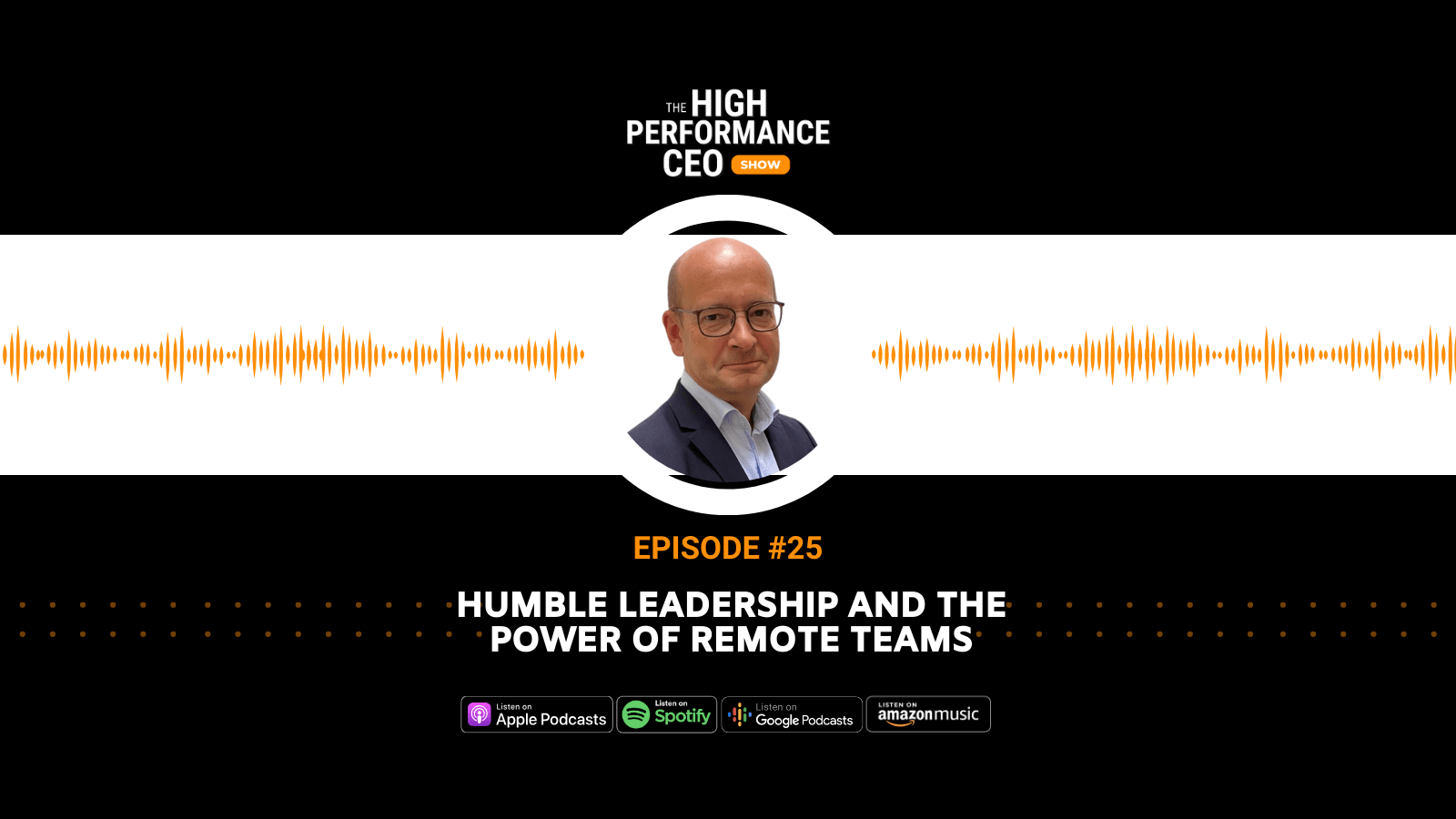2 min read
Humble Leadership and the Power of Remote Teams with Andreas Ditsche
 Sebastian Schieke
:
Mar 10, 2023 1:06:43 PM
Sebastian Schieke
:
Mar 10, 2023 1:06:43 PM

In this week’s episode of The High-Performance CEO Podcast, joining us is Andreas Ditsche - Investor, Business Angel, Professor and CEO of iGaming. Andreas discusses the benefits of remote work and the importance of intentional planning for team collaboration and social interaction. He also highlights the significance of employee development, approachable CEOs, and the utilization of chatbots and artificial intelligence.
Remote working can be a great opportunity for businesses to save costs and increase productivity, employee satisfaction, and attract talent. To create connection and fellowship amongst the virtual team, businesses should incorporate check-in calls, virtual social sessions, and other tools for better communication.
And with AI making it possible to build an empire with a few hundred people, it is important to look outside of one’s comfort zone and take advantage of the challenges presented with the help of AI.
More on Andreas
Andreas Ditsche is the CEO of iGaming Group. He started his professional career with a Big 4 auditing firm. Then he served as CFO and CEO of multinational companies, mainly in the fields of automotive/aerospace and power tools. Andreas has lived and worked in the USA and was the Managing Director of companies in Germany, Italy, France, and the UK. He also served as a non-executive director and member of supervisory boards. He is an experienced expert in change management and international business. Andreas holds a professorship in entrepreneurship and innovation.
Find Andreas
Linkedin: https://www.linkedin.com/in/andreas-ditsche-6a084b91/
Website: https://www.igaming.com
Key takeaways:
- Remote working can be a great opportunity for businesses to save costs, increase productivity and employee satisfaction, and attract talent.
- Fostering connection and camaraderie within a virtual team is important and can be done through intentional planning and tools.
- Companies must create attractive working conditions and build a strong employer brand in order to attract experienced people and those willing to take risks.
Why is remote working more beneficial than working onsite?
-
Increased productivity: According to a study by Airtasker, remote workers are 13% more productive than their office counterparts. This could be due to the lack of distractions and interruptions that are common in an office setting.
-
Better work-life balance: Remote workers have more control over their schedules and can better balance their personal and professional lives. This can lead to reduced stress and improved overall well-being.
-
Reduced commute time and costs: Commuting to and from work can be time-consuming and expensive. Remote workers save time and money by not having to commute, which can result in improved work-life balance and increased productivity.
-
Access to a larger talent pool: Companies that allow remote work can hire the best talent from anywhere in the world rather than being limited to candidates who live within commuting distance of the office. This can result in a more diverse and skilled workforce.
-
Reduced overhead costs: Companies can save money on rent, utilities, and other office-related expenses by allowing employees to work remotely.
-
Environmental benefits: Remote work can have a positive impact on the environment by reducing the number of cars on the road and decreasing carbon emissions.
Check out our other channels:
Instagram: https://www.instagram.com/sebastian.schieke.official
YouTube: https://www.youtube.com/@thpcshow
LinkedIn: linkedin.com/in/sebastianschieke
Website: www.sebastianschieke.com







